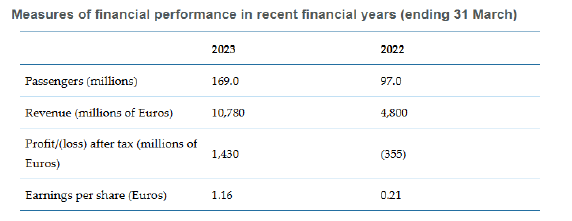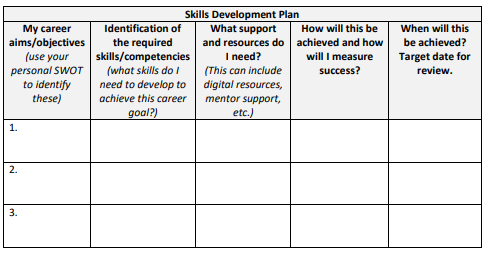Principles of Management CW3 Cohort Summative Assessment Brief
POM CW3 Summative Assessment Brief
This module is assessed through one graded element worth 100%. You must achieve at least 50% to pass the module. For this assignment you will produce a 5000-word management report on Ryanair including a skills development plan and a reflective statement, in an academic style.
By completing this assessment, you will achieve the following learning outcomes (LOs):
LO1 – Apply knowledge and understanding of the key management theories and concepts/practices to contemporary organisations.
LO2 – Critically analyse and highlight the key principles and functions of management including planning, organising, leading and controlling.
LO3 – Evaluate the dynamics of global business environment, and the need for effective management as a value adding universal activity at global, national and local levels.
LO4 – Critically reflect on their own management competencies to design a skills development plan, which is aimed at their future career aims and objectives.
POM CW3 Summative Assessment Scenario
Acting as a business consultant, you are required to analyse the management functions and practices and write a business report for the senior management team of Ryanair. You must utilise the techniques and concepts you have covered in the module. You must also provide a skills development plan and reflective statement.
Ryanair – an ultra low-cost airline
In 2023, Ryanair (based in Dublin) reported that it had carried over 168 million passengers in the year ending 31 March 2023 (FY 22–23), 74 per cent more than last year. Revenue had more than doubled (up 124 per cent) and profit after tax was 1,430 million euros, against a loss of 355 million euros in FY 21–22. It expects to carry 185 million passengers in FY 23–24. Costs, excluding fuel, of 31 euros per passenger, were now back to the pre-Covid level and lower than all competitors. Its load factor – the proportion of seats filled on its flights – rose to 93 per cent from 82 per cent the year before.
In FY 22–23, they opened five new bases and 300 new routes. Management plans to continue gaining market share from rivals in Western Europe, as well as stimulating demand in Central and Eastern Europe.
Aviation is a major source of carbon emissions, so Ryanair management invests heavily in fuel-efficient aircraft. During FY 21–22, they introduced 73 B737 ‘Gamechanger’ aircraft, which deliver ‘4% more seats per flight yet burn 16% less fuel’.1 They are also investing in the production of sustainable aviation fuel (SAF) and hope to power 12.5 per cent of flights using SAF by 2030.
Tony Ryan (1936–2007), the son of a train driver, left school at 14 to work in a sugar factory and in 1954 joined Aer Lingus, the state-owned Irish airline, to work as a baggage handler. By 1970, he oversaw the aircraft leasing division, lending Aer Lingus aircraft and crews to other airlines. This gave him the idea of creating his own aircraft leasing company, which he did without delay.
In 1985, he founded Ryanair, with a single aircraft flying between Ireland and the UK, to compete with his former employer. The Gulf War in 1990 discouraged air travel and caused financial problems for Ryanair. Rather than close it, Ryan and his senior managers (including Michael O’Leary, now Chief Executive) decided it would be a ‘no-frills’ operator, discarding the conventional features of air travel such as free food, drink, newspapers and allocated seats. Staff (including pilots, ground staff and cabin crews) would serve customers who wanted a functional and efficient service, not luxury.
In 1997, changes in European Union regulations enabled new airlines to enter markets previously dominated by national carriers such as Air France and British Airways. Ryanair quickly opened new routes between Dublin and continental Europe, and between European cities: although based in Ireland, 80 per cent of routes are between airports in other countries. Tony Ryan also turned Ryanair into a public company by selling shares to investors.
In May the company issued a statement of the results for 2022–23.

POM CW3 Summative Assessment Tasks
You are to critically analyse and evaluate the current management practices at RYANAIR. You must recommend changes based on your evaluation that RYANAIR must implement to improve its success.
Task 1 – Key Management Theories, Concepts and Practices (LO1)
For RYANAIR discuss how management theories, concepts and practices are currently adding value. Explain, with evidence, what these management practices have contributed to the success of the RYANAIR brand.
Support your arguments with reference to appropriate academic literature, case study materials and your independent research.
Task 2 – Management as a value adding universal activity (LO3)
Evaluate the dynamics of the global business environment. Discuss how the management at RYANAIR have adapted their strategies and methods, at global, national and local levels adding value to the subsidiary.
Support your arguments with reference to appropriate academic literature, case study materials and your independent research.
Task 3 – Key Principles and Functions of Management (LO2)
Critically analyse the management approach taken by the management at RYANAIR to address the key challenges. Highlight the key principles and functions of management (planning, organising, leading and controlling), with supporting evidence.
Support your arguments with reference to appropriate academic literature, case study materials and your independent research.
Task 4 – Critical Reflection and Skills Development Plan (LO4)
For this task, you are required to produce a Skills Development Plan (700 words) plus a 500-word Reflective Statement. You are required to reflect on your own management competencies, in line with your career goals.
Support your arguments with reference to appropriate academic literature, and your independent research.
Do You Need CW3 Summative Assessment of Report
Order Non Plagiarized Assignment
POM CW3 Summative Assessment Guidelines
Introduction:
- Introduce RYANAIR and explain the context of your management report.
- Briefly discuss the current issues at RYANAIR.
Task 1 – Key Management Theories, Concepts and Practices (LO1)
- Explain how management is contributing to adding value.
- Discuss the four philosophies of the Competing Values Framework and identify ONE other relevant management theory that is driving the management approach at RYANAIR.
- The relevant management theory must be appropriate to your answer. You may choose to consider the following theories: Scientific Management Theory, Bureaucratic Theory, Administrative Theory, Contingency Theory, TQM Theory etc. NOTE: This list is not exhaustive, and you should choose the most appropriate theory in your answer – DO NOT attempt to apply all theories.
Task 2 – Management as a value adding universal activity (LO3)
- Consider applying the LoNG-PEST framework, or Porter’s 5 forces to evaluate what RYANAIR should do differently at global, national and local levels.
- Based on the above analysis, identify and evaluate one global factor which can create opportunities and one which can pose threats to RYANAIR.
- Refer to specific details of where the management of RYANAIR can add value.
Task 3 – The key principles and functions of management (LO2)
- Keeping in view the current/expected environmental changes from your findings in Task 2, identify and critically analyse one internal challenge faced by the management of RYANAIR.
- Highlight the key principles and functions of management including planning, organising, leading and controlling, which can be applied by management to address this challenge.
- In your answer, you should justify your choice of one internal challenge with reference to the appropriate application of an academic models (for example: Value Chain analysis or VRIO, Mendelow’s matrix etc.).
Task 4 – Critical Reflection and Skills Development Plan (LO4)
- Complete your Personal SWOT below:

- Complete the following Skills Development Plan, aimed at addressing your future career aims and objectives:

- Provide a 500-word Reflective Statement on what you have learned of your own management competencies during this Module.
- This Reflective Statement should be written in the first person.
- Apply an appropriate personal reflection model such as Borton, Kolb’s Cycle, Maslow’s or GROW model.
- Focus your answer on the areas of key professional skills, including self-management, problem-solving and decision-making.
- Your personal reflection should be based on your Personal SWOT and Skills Development Plan.
Conclusion
Provide a conclusion that summarises your recommended changes that the RYANAIR Subsidiary should implement to improve its success.
POM CW3 Summative Report Structure
Your report structure should include the following sections:
- Cover page (BPP University Administration Cover Sheet)
- Table of Contents
- List of Abbreviations (if appropriate)
- Introduction (100)
- Task 1 (1200)
- Task 2 (1200)
- Task 3 (1200)
- Task 4 (1200)
- Conclusion (100)
- References
- Appendices (if required)
Tip for Mapping the Assessment towards Module Topics and Module Learning Outcomes (LOs
